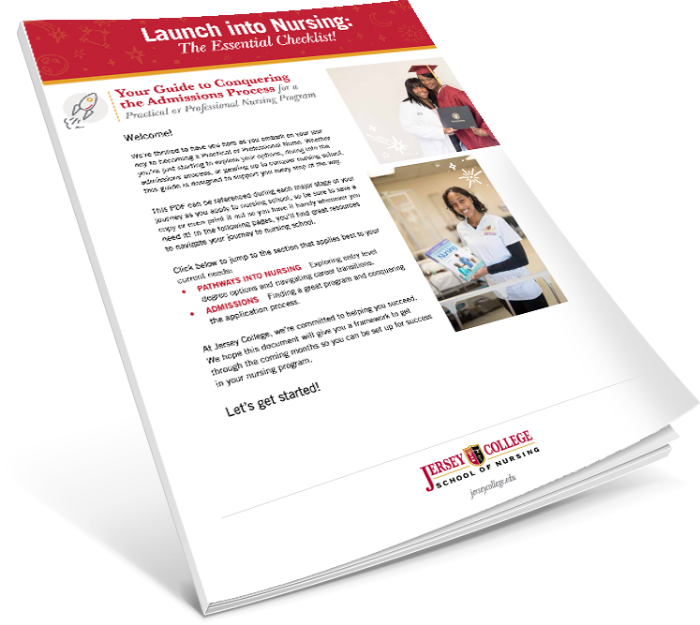
Associate Degree in Nursing vs. Licensed Practical Nursing Diploma
The Basic Differences
These are the main differences between an ADN vs LPN:
| ADN | LPN | |
|---|---|---|
| Degree Earned | Associate Degree in Nursing | Practical Nursing (PN) Diploma or Certificate* |
|
Program Type |
Professional Nursing |
Practical Nursing |
|
Licensure Exam |
NCLEX-RN | NCLEX-PN |
|
Role |
Registered Nurse (RN) | Licensed Practical Nurse (LPN) |
|
Length of Study |
2-3 years | 12-18 months |
|
Curriculum Focus |
Providing primary care for patients as well as learning management skills and how to work in acute-care settings. | Maintaining a safe and sanitary clinic environment, providing basic care for stable patients, and assisting RNs and physicians. |
|
Career Focus |
Primary care, management skills, acute-care settings. | Basic patient care, assisting RNs and physicians. |
|
Typical Work Settings |
Hospitals, clinics, outpatient facilities, and more. | Hospitals, nursing homes, home health care, and more. |
*The Jersey College LPN programs are a diploma-granting program. However, you may find some LPN and LVN programs that grant certificates instead of diplomas.
What is an ADN?
An Associate Degree in Nursing, or ADN, is a Professional Nursing program that prepares students to become Registered Nurses, or RNs.
It’s important to note that the ADN is only one degree option to become a Registered Nurse (RN) since you could also get a Bachelor’s degree. The BSN (Bachelor of Science in Nursing) will take 4 years instead of 2-3, and both options prepare you to become an RN.
Related Resource: ADN vs. BSN
What is an LPN?
A Licensed Practical Nurse (or LPN) program is a Practical Nursing program. LPN diplomas are not the same as an associate’s degree. This diploma-granting program prepares you to for the role of an LPN.
An LVN (Licensed Vocational Nurse) program may also be an option in your area. LVNs and LPNs are largely the same and this is mostly a nomenclature difference that depends on your state.
Related Resource: What is an LVN?


FREE Essential Guide to Nursing School: Get Accepted, Survive, and Thrive!
Cost Considerations
ADN programs typically take longer and therefore cost more than LPN programs.
Explore the total estimated program tuition & fees for the program in your area using the cost calculator below. You can also visit our Tuition & Fees page for a detailed breakdown of program costs by campus location.
Program Tuition & Fees*

DAY

EVENING








Verification Fee (per term)





* subject to change
† Please contact your Financial Aid Planner for scholarship terms and conditions'
The Cost of Attendance (“COA”) is a technical term utilized to provide an estimate of the total amount of a student’s educational expenses during their enrollment. The components of COA are: (x) tuition and fees (books, course materials, supplies, and equipment) (“Direct College Expenses”); and (y) an allowance for (i) transportation; (ii) miscellaneous personal expenses; (iii) living expenses (including food and housing costs); (iv) a professional license and (v) dependent care and/or disability accommodations, where necessary (“Life Expenses”). This website only provides information related to Direct College Expenses; it does not include Life Expenses.
Students should also weigh the cost of education against future earning potential:
- $59,730 = The median salary for an LPN/LVN in 2023 according to the U.S. Bureau of Labor Statistics. The average hourly rate was $28.72.
- $86,070 = The median salary for an RN in 2023, according to the BLS. The average hourly rate was $41.38.
To explore salary data for both LPNs and RNs by state, visit our Nursing Salary Guide.
Finally, proper financial planning for nursing education is also a crucial consideration. For more information on scholarships, grants, and other financial aid opportunities, explore our Financial Aid resources.

Sign up to get new articles in your inbox and stay updated on our nursing programs.
Educational Pathways
Let’s breakdown the difference in ADN vs LPN program experiences, length of study, and post-program licensure testing.
Clinical Experience and Training
Both LPN and ADN programs include essential clinical experience, providing students with hands-on training to develop their nursing skills. However, ADN programs offer more extensive clinical experience to prepare students for the broader responsibilities of an RN.
Some LPN and RN programs partner with hospitals to allow students to supplement their education with hands-on experience in a clinical setting. Be sure to explore the hospital-based programs offered at some Jersey College campuses if this is of interest to you.
Duration of Study
LPN programs generally take 12-18 months to complete, while ADN programs require 2-3 years. Some programs offer part-time study options, the ability to reduce your course load, or evening programs to accommodate those working and studying simultaneously.
There may also be opportunities for advanced placement in your chosen program:
- The LPN to RN Bridge Program is a popular pathway for LPNs to advance into the RN role.
- Advanced Placement options for the RN program may also allow students to receive credits for prior learning related to the completion of a Practical Nursing program.
Contact an Admissions Representative to learn more and discuss your options.

Licensing and Exams
After completing your degree, you’ll be required to pass the National Council Licensure Examination (NCLEX) in the state where you plan to practice. This is another area where ADNs and LPNs diverge:
- Those graduating from an LPN program will go on to take the NCLEX-PN. Exam topics include basic patient care, following instructions, and providing assistance to RNs.
- Those who earn an ADN will take the NCLEX-RN. The test covers the same material as the NCLEX-PN but with sections about supervising nurses and making decisions about patient care.
Once you pass your test and obtain your license, you’ll be ready to take a job as an RN or LPN!
For more information on further career opportunities, pay rates, and more, explore our LPN vs. RN page.
Find Your Campus
Once you’re decided on the best degree or diploma pathway for your goals, a great next step is to speak with experts at a trusted nursing school in your community.
Based on the success of our programs, Jersey College has grown to serve communities in 7 states. Find a campus near you to start living your NurseLife.

FREE Essential Guide to Nursing School: Get Accepted, Survive, and Thrive!
